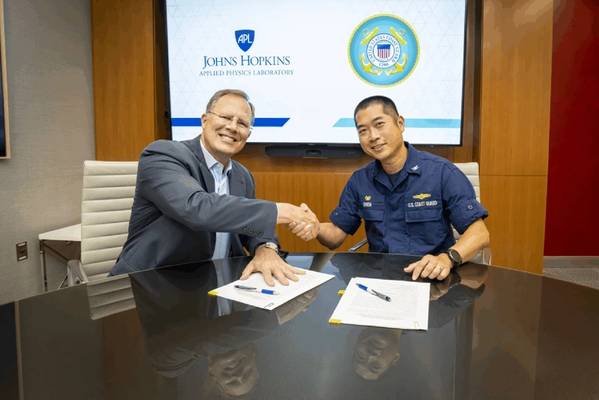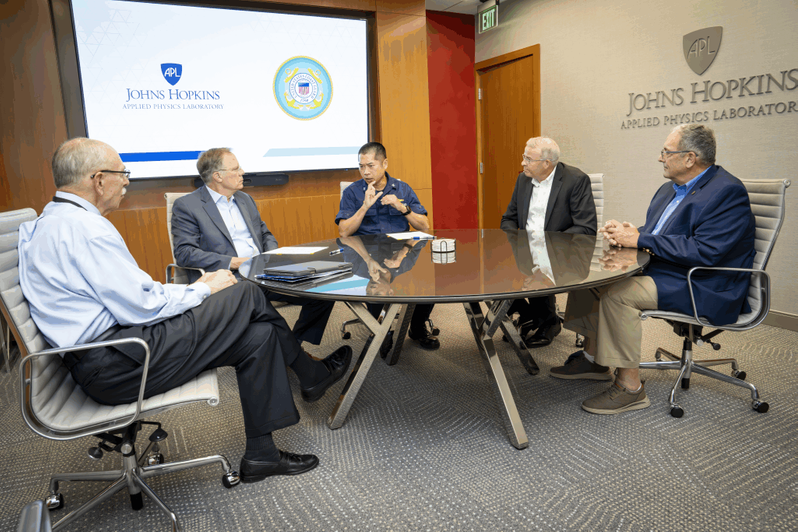
The Johns Hopkins Applied Physics Laboratory (APL) in Laurel, Maryland, and the U.S. Coast Guard Research and Development Center (RDC) in New London, Connecticut, have signed a comprehensive memorandum of understanding (MOU) to team up on addressing critical technology challenges in national defense and maritime security.
The MOU builds on a previous agreement signed in 2019, broadening and specifying more precisely the scope of collaboration between APL and RDC. It outlines plans for collaboration on initiatives in areas such as additive manufacturing, autonomous operations, cyber defense, critical infrastructure protection, human factors engineering, humanitarian assistance and disaster response, sensor optimization and supply chain assurance.
The organizations also envision conducting joint research and development (R&D) projects related to maritime security and safety, enabling APL staff members to see firsthand how their technical work is applied in the field.
“This agreement strengthens APL’s ties with the U.S. Coast Guard, and further enhances our ability to address critical maritime security challenges for the nation,” said APL Assistant Director Tim Galpin, who oversees the Lab’s programs. “We expect this continued collaboration with the Coast Guard RDC to drive innovation and enable a range of resourceful ideas and technical solutions to their pressing challenges.”
“The APL partnership is one of our strongest links to the expansive national security enterprise, and I look forward to more opportunities for collaboration in the future,” said Capt. Michael Chien, RDC commanding officer. “Renewing our MOU with APL is a cornerstone of our external partnership network. RDC has actively engaged with APL on a wide range of projects from cyber security, autonomous vessel operation and critical infrastructure protection to participation in Coast Guard Evergreen, our service’s strategic foresight program.”
The MOU affords APL the opportunity to host an annual workshop with RDC to discuss R&D perspectives, share project updates and explore options for future collaboration. The agreement also provides a framework for the Coast Guard to provide field support for select APL projects and identify opportunities for APL staff members to enhance their understanding of the maritime operational environment and its many related mission challenges.
 APL Assistant Director Tim Galpin and U.S. Coast Guard Research and Development Center commanding officer Capt. Michael Chien sign a memorandum of understanding at the Lab on Aug. 5. The two institutions have teamed up to address critical technology challenges in national defense and maritime security. (Credit: Johns Hopkins APL/Craig Weiman)
APL Assistant Director Tim Galpin and U.S. Coast Guard Research and Development Center commanding officer Capt. Michael Chien sign a memorandum of understanding at the Lab on Aug. 5. The two institutions have teamed up to address critical technology challenges in national defense and maritime security. (Credit: Johns Hopkins APL/Craig Weiman)



